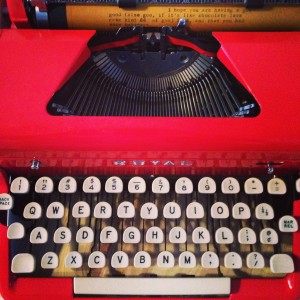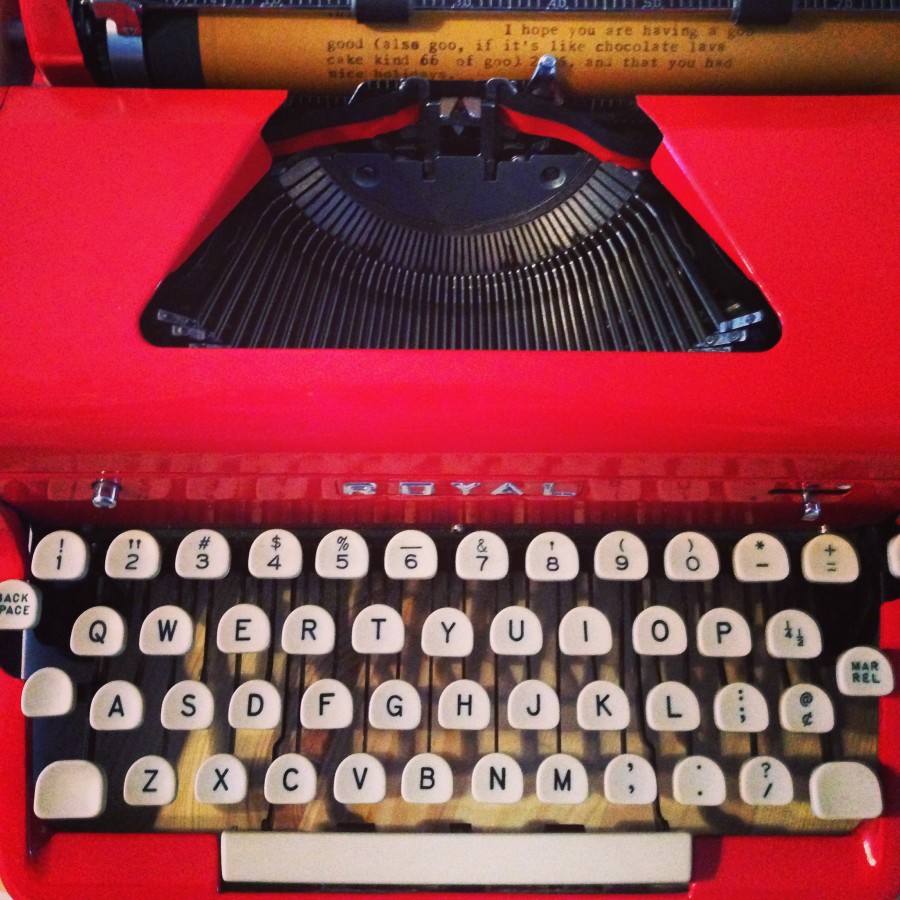
Around the new year, I got a typewriter. It was a birthday present from my parents. My mom became a typewriter convert several years ago. We visited Michael Ardito’s office on Staten Island, where he let me try out lots of manual typewriters, and I fell for the elegance of this red Royal.
It clacks with the kind of satisfactory auditory effect one hopes a typewriter will produce. It dings when it reaches the end of the line. Then I have to hope I can properly judge whether I can finish the word or decide to break it off with a hyphen in the keystrokes I have left. The typewriter introduces considerations that typing on a computer does not. It also removes certain pressures to go back, revise, and have a perfect finished product. My misspellings and mechanical misfires are evident in x-ing out and palimpsestic attempts at corrections.
The typewriter offers some transparency in process. You hit a key, the leg of type swings up and hits the ribbon of ink, leaving the print of the letter behind on the page.
Related: I’ve recently begun to get comfortable on the command line. (More on this anon.) Though the mechanics are invisible, computing processes become slightly less mysterious, a bit more transparent.
In these post-dissertation months, and while I’ve had the enforced discipline of a nine-to-five job, I have been working out how to make progress on various writing projects that I’ve been working on, or anticipating working on, for years. I’m currently reading Eric Hayot’s Elements of Academic Style, after attending his pre-ACLA workshop at the end of March. He advises writers to write, then figure out your best ideas, and then structure your revision according to those ideas (which seems straightforward, but I don’t think I have approached revision that way, exactly). He also urges an awareness of pacing, tone, and emotional impact of writing that I am finding helpful. He describes common and effective structures for academic arguments. There’s also practical stuff about writing every day, establishing work patterns, defining breaks and off-time.
This is to say that I am working to face and make progress on writing projects with a regular writing schedule. I finally emailed a long overdue review to an editor this week–a victory! I hope to learn from the clacks and dings of the typewriter, and the carriage’s movement across the page. More (figurative and literal) ink to paper, less scrolling, staring, and doubting. The nice thing about a typewriter is, it makes some noise.

Maybe I need a typewriter.